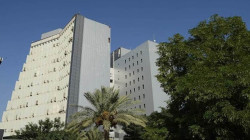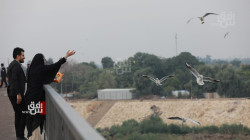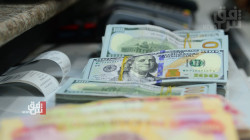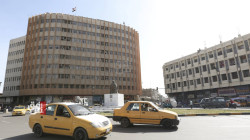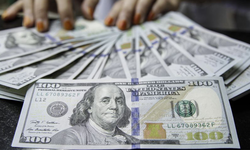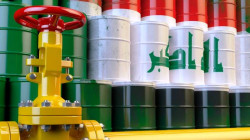Iraq's 2022 economy in a nutshell: A country without a budget, "theft of the century", and depreciation
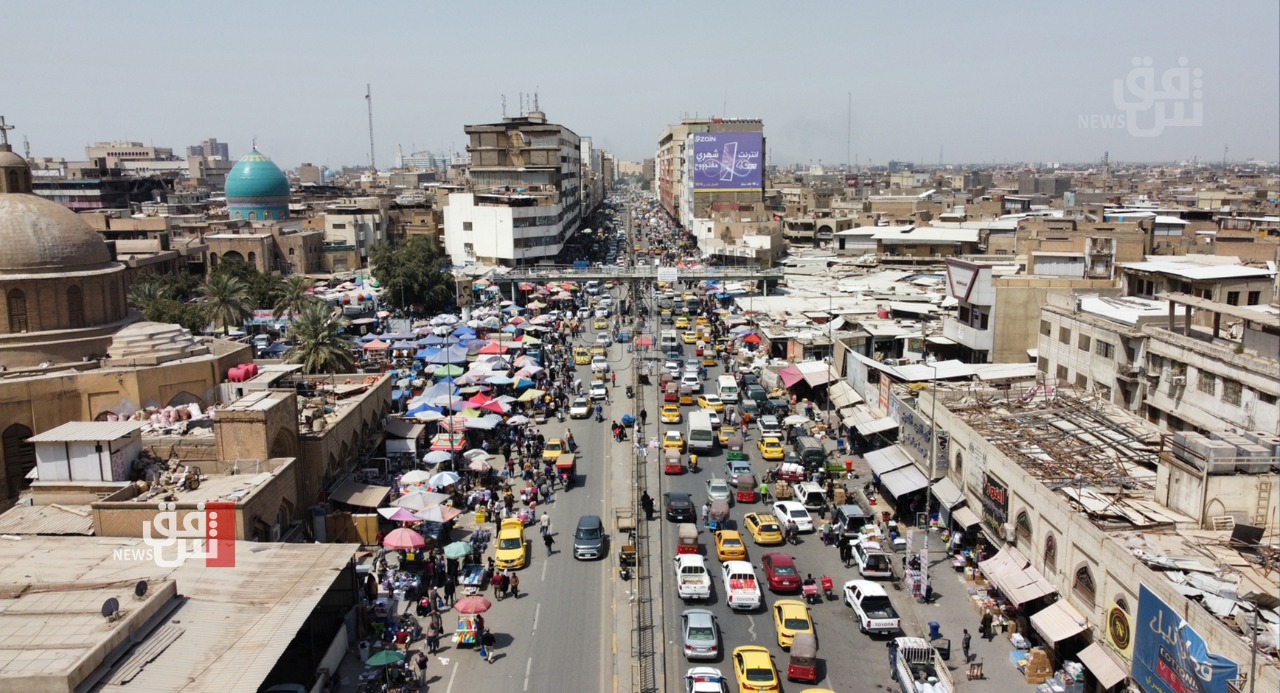
Shafaq News/ After a long and challenging year due to COVID-19, Iraq's economy rebounded in 2022 driven by rising oil output and a post-pandemic recovery in non-oil sectors. It might be expected that the country's administration would rush to reap the fruits of this breakthrough; However, this is not the case. Iraq inaugurated 2023 without a budget, risking the financial stability of an already-shaken economy.
To add salt to injury, Iraq ended the year with a massive forex reserve that might be pumped into healthcare, infrastructure, and education, but -somehow- it still failed to make a budget.
On top of all, 2022, which uncovered the biggest tax fraud in history, continued to squeeze the Iraqi economy until its final hours. The exchange rate of the Iraqi dinar against the U.S. dollar hit unprecedented levels, bringing the purchasing power of the citizens to a new low despite a relative political stability that followed the formation of a new cabinet.
Iraqi Council of Ministers
After much debate, the Federal Government's Council of Ministers stated in December that it had approved the distribution of 400 billion Iraqi dinars to the Kurdistan Region to pay the salaries for November and December of 2022.
On January 16, the Council of Ministers' Advisory Board ordered the Ministries of Industry, Minerals, and Agriculture to allow imports, which had already been categorically prohibited, and to refrain from using them due to their significant harm and tendency to foster monopolistic conditions.
On April 6, the General Secretariat of the Council of Ministers announced many decisions regarding food security as a result of the Russian-Ukrainian war, including opening the import of foodstuffs for a three-month period to address the food crisis, allowing the Ministry of Trade to import wheat with a cap not exceeding 3 million tons, and removing customs duties on food, construction materials, and medications.
Ministry of Finance
The political impasse that the nation suffered in the same year prevented the budget from being approved, which resulted in spending 1/12 of 2022's budget being the same as 2021's distribution operations, according to the Ministry of Finance's announcement on January 1.
Due to the lack of a budget for 2022, a law on food security worth 25 trillion dinars was released on March 15; at the time, it was stated that this law was "related to the citizen, the social welfare segment, the disbursement of farmers' rights, and the allocation of an amount to the Ministry of Electricity to pay debts and import gas."
On October 20, the largest theft in modern Iraqi history was made public. It involved 3.7 trillion Iraqi dinars, which were taken for the benefit of five companies and paid with 247 checks cashed between September 9, 2021, and August 11, 2022, from a branch of the state-run al-Rafidain Bank.
Moreover, on November 16, the United States announced that Iraqi bonds with the U.S. Treasury rose to $ 37.968 billion in September.
Central Bank of Iraq (C.B.I.)
On January 23, 2022, the C.B.I. launched various lending initiatives, including the small and medium enterprises financing initiative and the large projects initiative amounting to five trillion dinars to finance specialized banks, as well as three trillion dinars to support the real estate sector, and the clean energy financing initiative with an amount of one trillion dinars.
Furthermore, the C.B.I. reported on June 27 that Iraq had moved up ten places in the list of the nations with the largest gold reserves, increasing its total holdings to 130.39 tons, placing it thirtieth globally and fourth in the Arab world after purchasing roughly 34 tons.
Also, the C.B.I. reported an increase in its foreign reserves on September 11; they now stand at more than 90 billion dollars, the highest level since 2003.
On November 7, the C.B.I. decided to suspend dealing with the U.S. dollar currency for four Iraqi banks; al-Ansari Islamic Investment and Finance, Islamic Holding for Finance and Investment, Asia Iraq Islamic Investment and Finance, and Iraqi Middle East Investment, after a request from the U.S. Federal Bank due to suspicion of currency smuggling and money laundering.
Local Market and the C.B.I.
Following warnings from the U.S. Treasury Department, numerous banks were dissuaded from participating in the currency auction, causing dollar values to rise on December 1 and reach more than 154,000 dinars for every $100.
On December 2, the exchange rate on the Kurdistan Region's stock exchanges rose to surpass for the first time the barrier of 150,000 Iraqi dinars against 100 U.S. dollars.
Moreover, on December 4, the bank increased the share of companies in the dollar according to their classification, with A-class companies receiving $1,800,000 per week, B-class companies receiving $750,000 per week, and banks $200,000 per week.
Weeks after the dollar's exchange rate increased against the Iraqi dinar, the C.B.I. introduced a set of initiatives on December 19 to enhance the efficiency of dollar-related operations, including the selling of dollars through government banks.
Ministry of Oil
The Chinese business Sinopec and the Oil Ministry signed a contract on January 20 to develop the 300 million standard cubic feet (MMSCF) Mansouriya gas field in Diyala.
The Kurdistan Region's oil and gas law was declared unconstitutional by the Federal Court in February. The regional government viewed this ruling as the result of political pressure, and as a result, some oil corporations that had been operating in the region for years withdrew.
After oil prices increased to over $112 per barrel on May 1, the ministry announced the highest oil revenue since 2003, totaling more than $11 billion and $477 million.
On the other hand, a serious car fuel crisis struck several Iraqi governorates on June 20.
On September 12, the Minister of Oil declared Iraq's commitment to exporting its full allotment under the OPEC agreement and determinants, as well as its intention to cooperate with other OPEC members and supporters from outside the group to bring about market balance.
On October 2, the Ministry of Oil announced a deal with Baker Hughes, an American firm, to increase associated gas output in the Nasiriyah and al-Gharraf oil fields to 200 MMSCF over the ensuing period.
Moreover, Iraqi oil and the Chinese business CNOOC signed a cooperative study of the onshore portion of the offshore patch in the Gulf on October 17.
Ministry of Agriculture
The import of 33 foodstuffs from the Kurdistan Region, as well as their transfer to the other governorates of Iraq, were both prohibited on April 7 by the Iraqi Ministry of Agriculture.
Then, on July 20, Bikard Talabani, the Kurdistan Region's Minister of Agriculture and Water Resources, declared that the federal government had given the go-ahead for the region's farmers to market their crops throughout the rest of Iraq.
Furthermore, the Ministry of Agriculture blamed some governors who hindered the transit of eggs and hens between the governorates and monopolized some for the price increase of eggs in July, which reached more than 7,000 dinars per parcel.
Also, due to their local abundance, the ministry issued an order on July 21 to cease importing six crops, including "potatoes, watermelons, tomatoes, cucumbers, and eggplants" through the country's border crossings.
Moreover, more than 700,000 tons of dates were exported to many Arab and foreign nations in September, according to the ministry.
In December, the Kurdistan Regional Government (K.R.G.) announced exporting the first batch of local pomegranates to the U.A.E. as the first batch of local products to be exported abroad.
Ministry of Electricity
The Ministry of Electricity declared an exceptional production of over 24,000 megawatts on September 18.
While on June 15, the ministry announced the payment of Iranian gas dues in arrears for the year 2020 through internal borrowing from the Iraqi Trade Bank, which amounted to $ 1.6 billion.
Ministry of Trade
Following the increase in wheat prices brought on by the Russian-Ukrainian conflict, the Ministry of Trade announced on March 6 a plan to purchase one million tons of wheat to ensure the food supply for the current year.
The Russian-Ukrainian war's effects on food prices became apparent in March as markets throughout Iraq, and the Kurdistan Region witnessed price increases in response to the war's outbreak and its global economic effects.
As part of an initiative to automate the ration card in collaboration with the World Food Program, the ministry stated on September 27 that it had begun giving out electronic ration cards to residents of Najaf governorate.
According to the Iraqi Trade Ministry, the 46th Baghdad International Fair began on November 1 with the participation of 12 nations and 363 domestic and international enterprises.
Ministry of Planning
Compared to September 2021, the annual inflation rate on October 16 was 5.3%.
Moreover, in addition to the Dhi Qar and the freed areas reconstruction fund and the Ministry of Construction, 2,768 service projects spread over 15 governorates were scheduled on November 29 with a budget of more than 4 trillion dinars.
International Monetary Fund
On October 12, Iraq topped the list of Arab countries with economic growth for 2022 with a growth rate of 9.3%.
